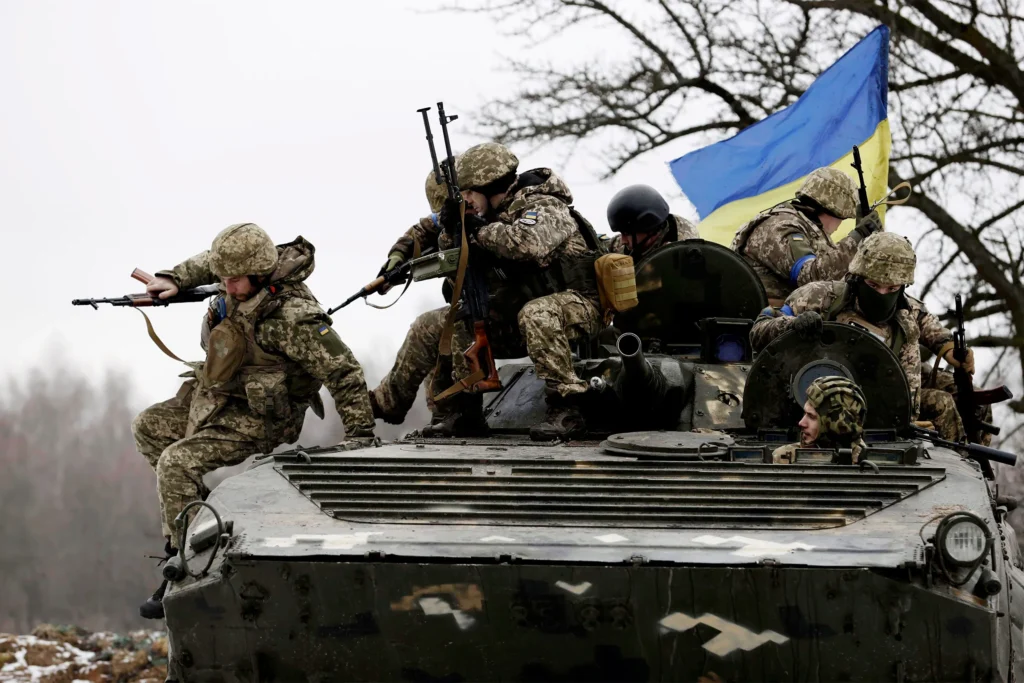
By Jim Morris, Warrior Vice President, News
Deputy Defense Secretary Kathleen Hicks told a British think tank that Russia’s war against Ukraine offers a window into future wars – not just in Europe, but in the Indo-Pacific as well.
“We’re seeing novel applications of both old and new technologies, some of which will be significant factors in how wars of the future will likely be fought,” Hicks said in a speech at the Royal United Services Institute in London.
She said there are several early insights from the war in Ukraine.
First, the value of quality intelligence. “Prior to February 22, 2022, few countries expected Russia to further invade Ukraine. We knew better,” Hicks said. “Thankfully we saw the enormous build-up of Russian forces early. We had enough confidence in the indications and warnings, and enough credibility, to disseminate the information and rally our friends and allies.”
Next was the ability for militaries to integrate all their elements into a cohesive system: “If you don’t have consistent operational know-how, winning is tough. We saw this clearly in Russia’s early battlefield failures, and it’s still worth noting almost three years later,” she said.
Hicks pointed out that Ukraine’s forces had been working with the US and the UK since 2014 and “those efforts paid off early.”
She also noted that Russian leader Vladimir Putin was wildly optimistic in his own troops’ abilities.
“Putin planned to take over Ukraine within ten days. To date, he’s missed his target timeline 100 times over,” Hicks said. “He underestimated Ukraine’s will to fight, and ability to innovate – and frankly, so did many in the West. Even with the best intelligence apparatus in the world, you won’t always get everything right.”
Hicks said one reason for that is that alliances and partnerships are an “asymmetric advantage, especially when the free world comes together to provide security assistance…to impose costs, including the many economic tools at our disposal, and to defend the rules-based international order that’s had so much benefit to so many for so long.”
So what do these insights mean when it comes to China?
Hicks said Russia’s early battlefield struggles should concern Beijing, because the People’s Liberation Army hasn’t fought a war in 40 years.
“Meanwhile, Ukraine’s example of resistance and innovation against an aggressor should also be appreciated clearly – on both sides of the Taiwan Strait, in the South China Sea and elsewhere,” she said.
“Again, an instigator on conflict in the Indo-Pacific would find the same outcome Moscow has found in Europe: that military aggression won’t achieve your objectives quickly. That you will become increasingly isolated. And that…the free world can impose severe economic and reputational costs.”


